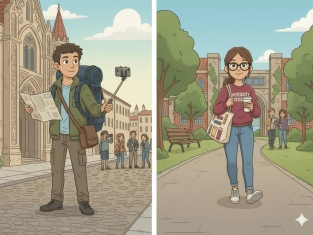Second Conditional
Table of Contents
Exercises
Explanation
Second Conditional – talking about unreal or imaginary situations
When We Use the Second Conditional
We use the Second Conditional to:
-
Talk about dreams or wishes
-
Give advice
-
Imagine different situations
Examples:
-
If I had a car, I would drive to the beach.
-
If she were taller, she could play basketball.
-
If I lived in Italy, I would eat pizza every day.
-
If we had more money, we might travel around the world.
-
If I were you, I would study harder.
The Structure
|
If-clause (condition) |
Main clause (result) |
|
If + Past Simple |
Would + base verb |
Examples:
-
If I knew his number, I would call him.
-
If it rained tomorrow, we would stay at home.
-
If they studied more, they would pass the exam.
Verb “to be” – Always “were”
In the Second Conditional, we use were with all subjects (I, he, she, it, etc.)
Examples:
-
If I were rich, I would buy a big house.
-
If he were my teacher, I would be happy.
-
If she were you, she would take the job.
Using Other Modal Verbs
We can also use could or might instead of would to show possibility.
|
Modal Verb |
Meaning |
Example |
|
would |
certain result |
If I had time, I would visit you. |
|
could |
ability |
If I had a bike, I could ride to work. |
|
might |
possibility |
If it were sunny, we might go for a walk. |
Negative Form
Add not after would or in the if-clause.
Examples:
-
If I were rich, I wouldn’t work every day.
-
If he didn’t eat so much sugar, he would be healthier.
-
If they weren’t so busy, they would join us.
Question Form
We can make questions in two ways:
-
If + Past Simple, would + subject + verb?
-
If you were a teacher, would you enjoy your job?
-
Would + subject + verb if + Past Simple?
-
Would you enjoy your job if you were a teacher?
Both have the same meaning.
Punctuation Tip
Use a comma after the if-clause when it comes first:
-
If I had wings, I would fly.
No comma when the if-clause comes second:
-
I would fly if I had wings.
Even If
We use even if to make the situation stronger or more emotional.
Examples:
-
Even if I won the lottery, I wouldn’t quit my job.
-
Even if it snowed, we would still go hiking.

